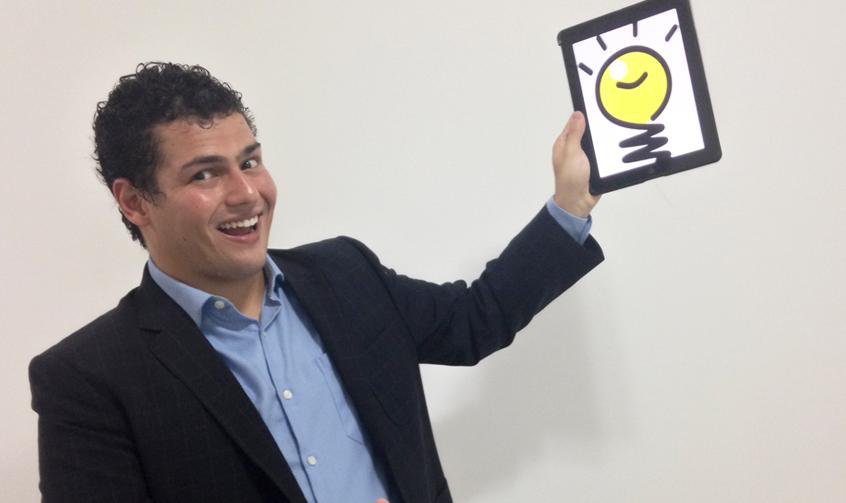"As a child, Mario Adolfi made frequent trips to the hospital with his brother who suffered from respiratory difficulties. These hospital visits made him reflect on the importance that efficient health care has on the lives of patients and their families. Nearly two decades later, this graduate in Biomedical Informatics from the University of São Paulo (Brazil) has launched HealthBI, a computer program for scientific data management in healthcare.
In 2009, Adolfi initiated his first major project from his newly incorporated company, Kidopi, consisting of the creation and implementation of the first web-based coordination system for medical emergencies targeting a population of more than a million people in the city of Ribeirão Preto (Brazil). This project improved efficiency and increased safety in the coordination of public health service in the district, and became the main foundation for the organization of emergencies throughout the state of São Paulo.
This first experience was what headed him towards the development of the HealthBI program. Adolfi explains, “We thought it was important to combine medical assistance and scientific data to achieve intelligent management”. In late 2012, the young researcher presented the program that provides hospital administrators with the ability to consult different indicators used for decision-making in real time. This data creates an environment of intelligent management, able to identify adverse events in advance.
With this tool Adolfi attempts to give managers the ability to identify inefficiencies, to plan actions to meet future demands and to optimize the patient flow in hospitals. The HealthBI program has been used as a model for the subsequent implementation of health management programs in the State of São Paulo. In addition, it was selected by the UN in the category of e-health as the best software in Brazil, and represented Brazil in the international phase of the World Summit Award competition. Adolfi says: “I think we've developed a tool capable of providing more efficient, agile and specific treatments for the entire population”.
The technology developed by the young researcher thrives on the innovation of advanced computing, artificial intelligence, machine learning, pattern recognition, natural language processing and many other techniques to help solve real problems like improving the care of chronic diseases in low-income neighborhoods."




